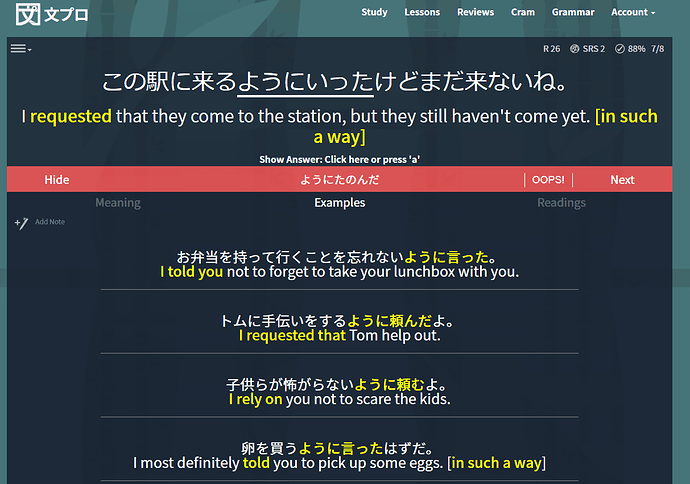In every example except in the one in the image below the hint “requested” is translated as ように頼む how do I know that in this specific example I have to write ように言う?
Also the hint “told” only once is translated as ように頼む.
This is the example I am talking about
掃除そうじ終おわったばかりなのに洗あらい物ものもするように頼たのまれた。
Even though I had just finished cleaning the house, I was told to do the dishes. [in such a way]


